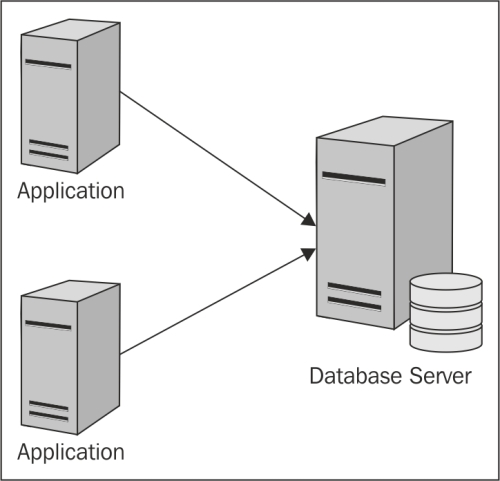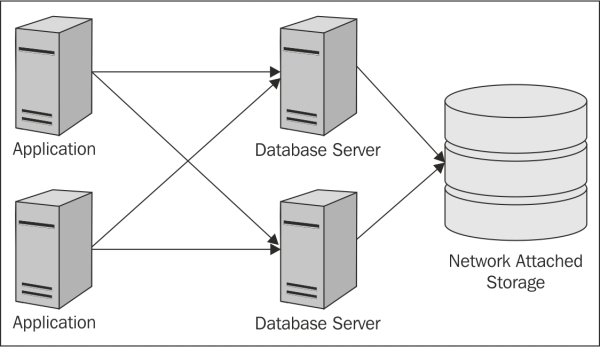The monolithic architecture
The simplest design approach to guarantee ACID properties is to implement a monolithic architecture where all functions reside on a single machine. Since no coordination among nodes is required, the task of enforcing all the system rules is relatively straightforward.
Increasing availability in such architectures typically involves hardware layer improvements, such as RAID arrays, multiple network interfaces, and hot-swappable drives. However, the fact remains that even the most robust database server acts as a single point of failure. This means that if the server fails, the application becomes unavailable. This architecture can be illustrated with the following diagram:

A common means of increasing capacity to handle requests on a monolithic architecture is to move the storage layer to a shared component such as a storage area network (SAN) or network attached storage (NAS). Such devices are usually quite robust with large numbers of disks and high-speed network interfaces. This approach is shown in a modification of the previous diagram, which depicts two database servers using a single NAS.

You'll notice that while this architecture increases the overall request handling capacity of the system, it simply moves the single failure point from the database server to the storage layer. As a result, there is no real improvement from an availability perspective.























































